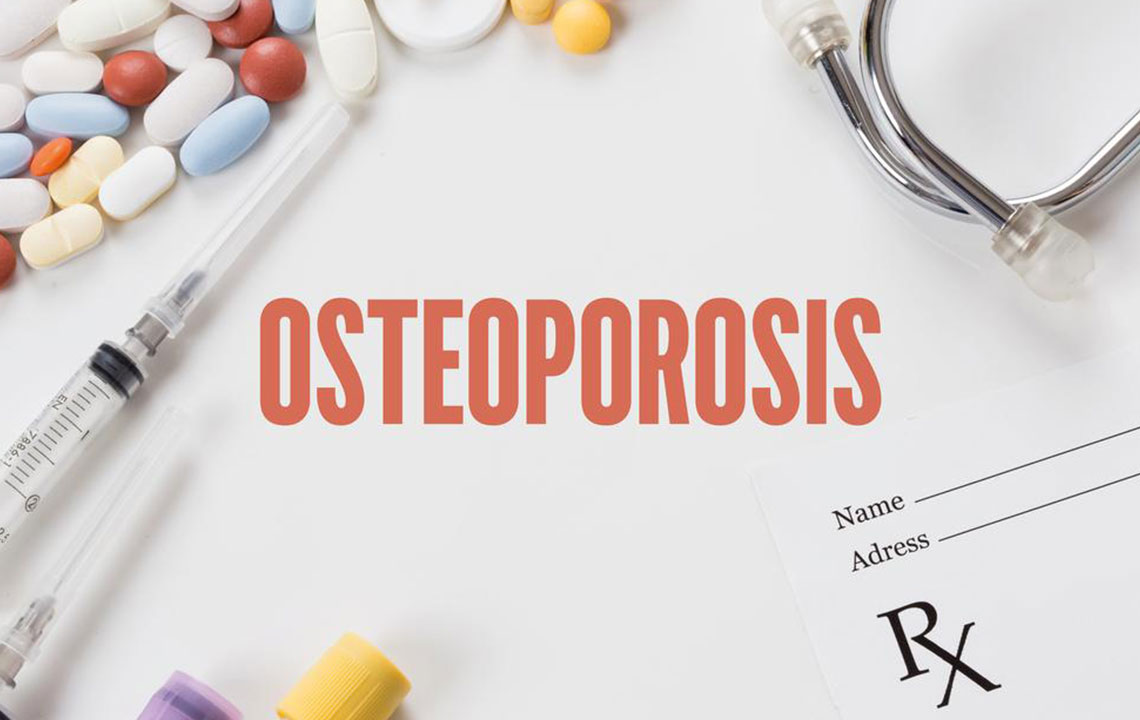Comprehensive Nutritional Strategies to Prevent Osteoporosis and Strengthen Bone Health
This comprehensive guide explores effective nutritional and lifestyle strategies to prevent osteoporosis and strengthen bones. Emphasizing calcium, protein, vitamins C, K, and D, along with medical treatments, it provides practical advice for maintaining skeletal health throughout life. Early intervention and a balanced diet are vital to reducing fracture risk and ensuring long-term bone strength.

Essential Dietary Approaches for Reducing Osteoporosis Risk and Enhancing Bone Strength
As the human body ages, one of the most significant health concerns that can emerge is the weakening of bones, which often leads to osteoporosis. This bone disease is characterized by decreased bone density and increased fragility, making bones more susceptible to fractures and injuries. The process of bone health deterioration is gradual, involving a complex balance between bone tissue breakdown and regeneration. When this balance tips unfavorably, osteoporosis develops, especially in older adults and postmenopausal women. However, a proactive approach centered on proper nutrition and lifestyle choices can substantially mitigate this risk, supporting maintained bone density and overall skeletal strength. This detailed guide explores key dietary strategies and practical tips to help prevent osteoporosis and promote strong, healthy bones throughout life.
Essential Calcium Intake for Bone Durability and Function
Calcium remains the cornerstone of bone health. This vital mineral constitutes roughly 99% of the body's calcium content, primarily stored in bones and teeth, providing structural support and strength. Adequate calcium intake is crucial for maintaining optimal bone density, especially as you age. The human body's ability to absorb calcium is influenced by factors such as age, hormonal levels, and other nutritional components.
Recommended calcium levels vary depending on age and gender. For example, adults aged 19-50 should aim for about 1,000 mg daily, while women over 50 and men over 70 should increase their intake to 1,200 mg daily. Dietary sources rich in calcium include dairy products like milk, yogurt, and cheese, which serve as primary sources for many people. Besides dairy, there are numerous plant-based options such as dark leafy greens, including kale, collard greens, and bok choy. Broccoli is another excellent vegetable rich in calcium, as are fortified plant-based milks and cereals. Fatty fish varieties like canned salmon and sardines, with edible bones, provide an alternative calcium source. Nuts, seeds, and legumes such as almonds, chia seeds, and soybeans also contribute to daily calcium needs, along with tofu prepared with calcium sulfate. Ensuring a consistent intake from diverse sources helps maintain sufficient calcium levels pivotal for bone strength and health.
Role of Protein and Magnesium in Supporting Bone Integrity
Proteins are fundamental building blocks for various tissues, including bones. Adequate protein intake is associated with increased bone density and reduced fracture risk. The recommended dietary allowance (RDA) suggests consuming at least 15 grams of high-quality protein per meal to support bone repair and strength. Excellent dietary sources include lean poultry, fish, eggs, and dairy products. Plant-based options such as beans, lentils, nuts, and soy products are also valuable in providing necessary amino acids.
Minerals like magnesium also play a critical role in bone health. Magnesium contributes to the structural development of bones by aiding in mineralization, and the majority of the body's magnesium resides in bones. A deficiency in magnesium can compromise bone density, making bones more fragile. Good dietary sources include nuts such as almonds and cashews, pumpkin seeds, sunflower seeds, whole grains, and dark leafy greens like spinach. Incorporating these foods in your daily diet helps foster stronger bones and improve overall mineral balance, which is essential for maintaining skeletal integrity over the long term.
Vitamins C and K: Supporting Collagen Formation and Bone Matrix
Vitamins C and K are vital nutrients that support different aspects of bone health. Vitamin C, commonly known for boosting immune health, also plays a significant role in collagen synthesis—the primary protein in the bone matrix that provides flexibility and tensile strength. Dietary sources high in vitamin C include citrus fruits such as oranges and lemons, along with tomatoes, kiwis, red peppers, and strawberries. Regular consumption of these foods ensures optimal collagen production, which is integral to sturdy bones.
Vitamin K is another essential nutrient that influences bone mineralization. It activates osteocalcin, a protein required for binding calcium to the bone matrix. Deficiency in vitamin K has been linked to decreased bone density and increased fracture risk. Rich sources of vitamin K include green vegetables like Brussels sprouts, broccoli, cauliflower, kale, turnip greens, collard greens, and cabbage. Ensuring a diet rich in these vegetables supports proper bone remodeling and maintenance.
Vitamin D: The Sunshine Vitamin and Its Impact on Calcium Absorption
Vitamin D is crucial for calcium absorption from the gastrointestinal tract and maintaining adequate blood levels of calcium and phosphate, essential for healthy bone mineralization. Sunlight exposure triggers the skin to synthesize vitamin D naturally; however, many individuals do not get sufficient sun exposure, especially in higher latitudes or during winter months. Dietary sources of vitamin D include fortified foods like dairy products and cereals, fatty fish such as salmon, mackerel, and tuna, and egg yolks. Some individuals may require supplements, especially those at risk of deficiency due to limited sun exposure or certain health conditions.
Managing Osteoporosis: Medical Treatments and Lifestyle Changes
While diet plays a pivotal role in bone health, certain cases of osteoporosis require medical intervention to prevent fractures and further bone deterioration. Healthcare providers may prescribe specific medications aimed at either slowing bone loss or promoting bone formation. Understanding these treatments helps individuals make informed decisions about their health.
Evenity® (romosozumab): A relatively recent innovation, this injectable medication is designed mainly for postmenopausal women at high risk for fractures. It works by stimulating new bone formation while inhibiting bone resorption. The treatment involves subcutaneous injections twice a month over a period of one year, after which outros therapies may continue depending on the patient's condition.
Prolia® (denosumab): This is a monoclonal antibody administered via prefilled syringe, given biannually for both men and women with osteoporosis. It reduces bone resorption by inhibiting RANKL, a protein involved in osteoclast formation and activity, thereby decreasing fracture risk and increasing bone density.
Fosamax® (alendronate): As a bisphosphonate medication, Fosamax works by slowing down bone loss. It's commonly prescribed to postmenopausal women and individuals with Paget's disease. Usually taken orally once weekly or monthly, it requires patients to follow specific instructions to prevent esophageal irritation and enhance absorption.
In addition to medications, lifestyle modifications such as engaging in weight-bearing and muscle-strengthening exercises, quitting smoking, limiting alcohol intake, and ensuring adequate nutritional intake are crucial components of osteoporosis management. Regular bone density screenings enable early detection and intervention, helping preserve mobility and quality of life for individuals at risk.
In conclusion, the key to preventing the progression of osteoporosis lies in a comprehensive approach combining tailored nutrition, physical activity, medical treatments when necessary, and lifestyle adjustments. By understanding and implementing these strategies early, individuals can take proactive steps toward maintaining healthy, resilient bones at any age.





